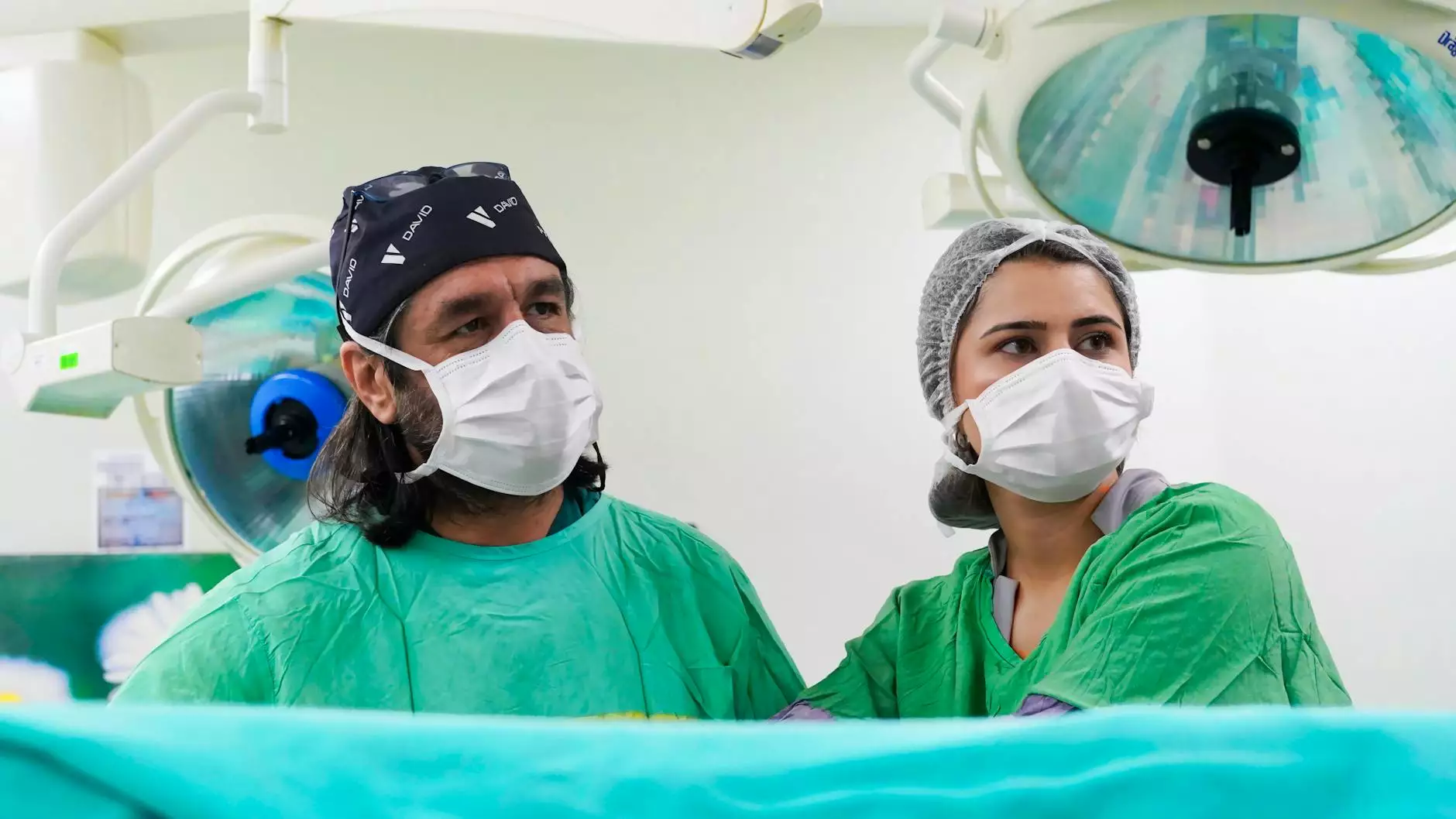Expert Insights into Thoracic Surgery: Understanding Your Path to Health

In the world of modern medicine, the specialization of a thoracic surgeon is vital for managing conditions related to the chest, lungs, and heart. This article dives deep into the responsibilities, procedures, and benefits of these seasoned medical professionals, shedding light on how their expertise can dramatically improve health outcomes.
What is a Thoracic Surgeon?
A thoracic surgeon is a board-certified specialist who performs surgical procedures on the thoracic cavity, which includes the lungs, esophagus, trachea, thymus gland, and heart. These professionals undergo extensive training that may take up to 15 years, including medical school, general surgery residency, and a thoracic surgery fellowship.
The Importance of Thoracic Surgery
The significance of thoracic surgery cannot be overstated. Conditions such as lung cancer, esophageal disorders, and heart diseases necessitate the expertise of a thoracic surgeon. Their role is crucial in diagnosing, treating, and managing various medical conditions. By understanding the complexity of the thoracic organs, these surgeons can develop targeted therapies that can save lives.
Common Conditions Treated by Thoracic Surgeons
- Lung Cancer: A leading cause of cancer-related deaths worldwide, lung cancer requires early detection and may necessitate lobectomies, wedge resections, or pneumonectomies.
- Esophageal Disorders: Conditions such as gastroesophageal reflux disease (GERD), achalasia, or esophageal cancer may require surgical intervention, including esophagectomy or fundoplication.
- Thoracic Aneurysms: A thoracic surgeon manages aneurysms located in the chest area, often via open repair or endovascular techniques.
- Pleural Diseases: Conditions like pleural effusion or empyema might require procedures such as thoracentesis or pleurectomy.
The Surgical Interventions of Thoracic Surgeons
Once a diagnosis is established, a thoracic surgeon employs various surgical methods to facilitate patient recovery. The choice of procedure largely depends on the specific condition and its severity. Below are some common interventions performed by thoracic surgeons:
1. Lobectomy
In cases of lung cancer, a lobectomy—removing an entire lobe of the lung—can be performed to eliminate cancerous tissues. This procedure enhances the chance of survival and minimizes the risk of metastasis.
2. Esophagectomy
For patients suffering from esophageal cancer or severe dysphagia, esophagectomy—the removal of part or all of the esophagus—can restore swallowing functionality and prevent the spread of cancer.
3. Video-Assisted Thoracoscopic Surgery (VATS)
Using minimally invasive techniques, VATS allows a thoracic surgeon to access the thoracic cavity with small incisions. This method leads to reduced post-operative pain and faster recovery times.
4. Thoracic Aortic Aneurysm Repair
Thoracic aortic aneurysms can be life-threatening. Repair techniques can be either open surgical approaches or less invasive endovascular procedures, depending on the location and size of the aneurysm.
Post-Operative Care and Recovery
After a surgical procedure, comprehensive post-operative care is crucial for recovery. A thoracic surgeon typically monitors the patient for complications and provides guidelines for rehabilitation. This may include:
- Pain Management: Addressing discomfort through medications and therapies.
- Physical Therapy: Encouraging activities that strengthen the respiratory muscles and improve overall endurance.
- Nutritional Guidance: Counseling on dietary changes that support recovery and healing.
- Regular Follow-ups: Ensuring continuous assessment of recovery progress and prompt identification of any complications.
Choosing the Right Thoracic Surgeon
Selecting a thoracic surgeon is a critical decision that can significantly impact your health outcomes. Here are several factors to consider when choosing a surgeon:
- Credentials: Ensure the surgeon is board-certified and has specific training in thoracic surgery.
- Experience: Inquire about the number of similar procedures performed and the patient's outcomes.
- Hospital Affiliation: Choose a surgeon affiliated with a reputable healthcare facility known for excellence in thoracic surgery.
- Patient Reviews: Research ratings and testimonials from previous patients to gain insights into their experiences.
Neumark Surgery: A Leader in Thoracic Surgical Care
At Neumark Surgery, we pride ourselves on offering world-class thoracic surgical services. Our team of experienced thoracic surgeons is dedicated to providing patients with personalized care that considers their unique medical histories and health goals. Our state-of-the-art facilities and cutting-edge surgical techniques ensure that you receive the highest standard of care.
Conclusion
Understanding the role and expertise of a thoracic surgeon can empower patients to make informed decisions about their health. The surgical interventions these specialists provide are critical for effective management of thoracic conditions. If you’re in need of thoracic surgical care, we encourage you to reach out to Neumark Surgery to learn how our team can help you achieve a healthier tomorrow.
FAQs About Thoracic Surgery
What qualifications should I look for in a thoracic surgeon?
Look for board certification, experience in relevant procedures, and positive patient outcomes. An open line of communication about your specific condition is also essential.
Are all thoracic surgeries performed in the hospital?
Most thoracic surgeries require a hospital setting, especially those involving anesthesia. However, some minor procedures might be available in outpatient centers.
What can I expect during recovery after thoracic surgery?
Recovery varies by procedure, but you can expect pain management, physical rehabilitation, and follow-up visits to ensure proper healing. Your surgeon will provide a detailed recovery plan tailored to your needs.
How long is the recovery time after thoracic surgery?
Recovery times can vary widely depending on the type of surgery performed and individual health factors, but many patients see substantial improvement within a few weeks to months.
Can I return to work after thoracic surgery?
Your return to work depends on the nature of your job and the specifics of your recovery. Your surgeon will guide you on when it's safe to resume work activities.
Take Action Today!
If you or a loved one is facing potential thoracic surgery, do not hesitate to consult with our dedicated team at Neumark Surgery. Together, we will develop a personalized treatment plan that addresses your needs and puts you on the path to recovery.









